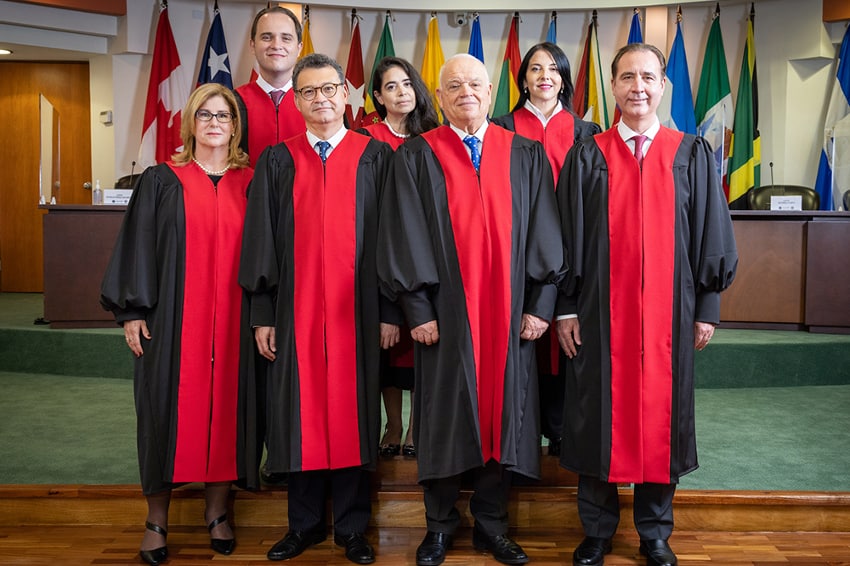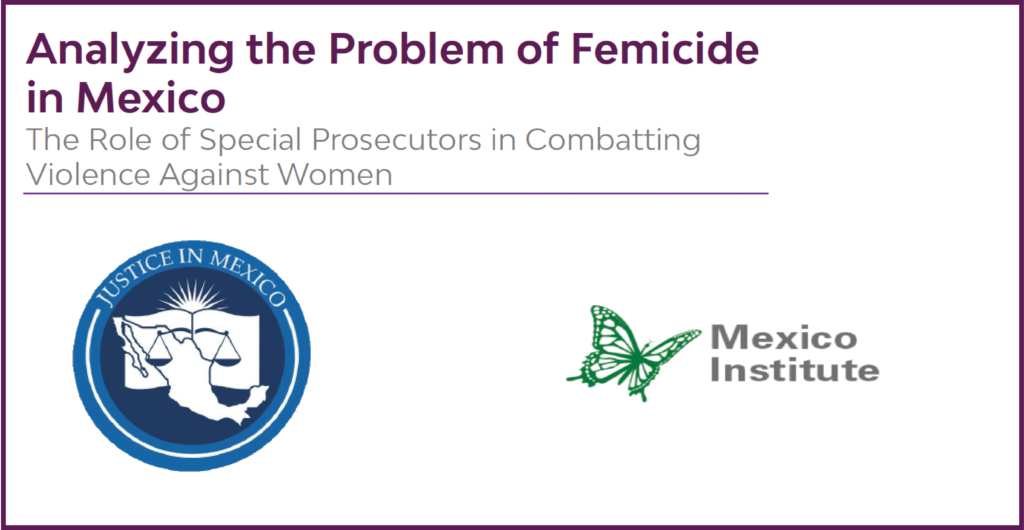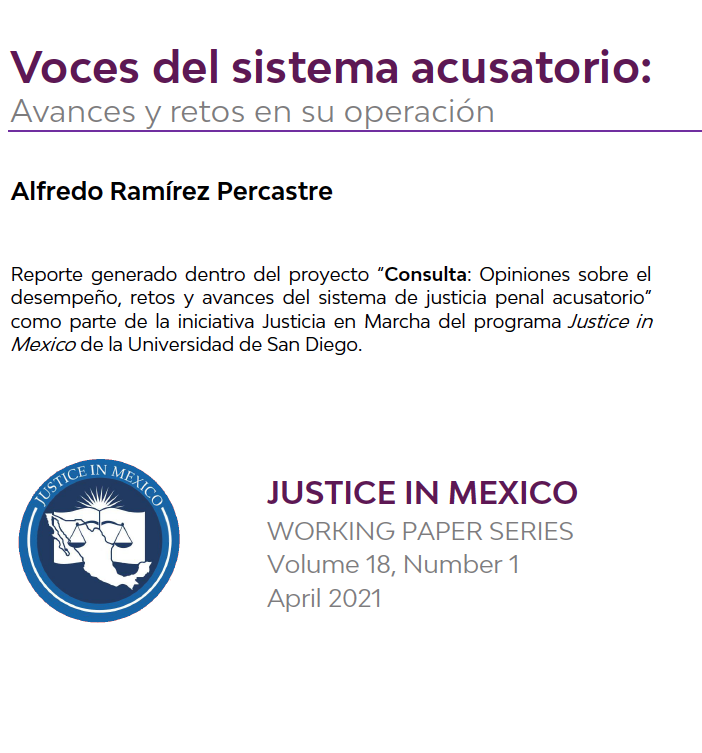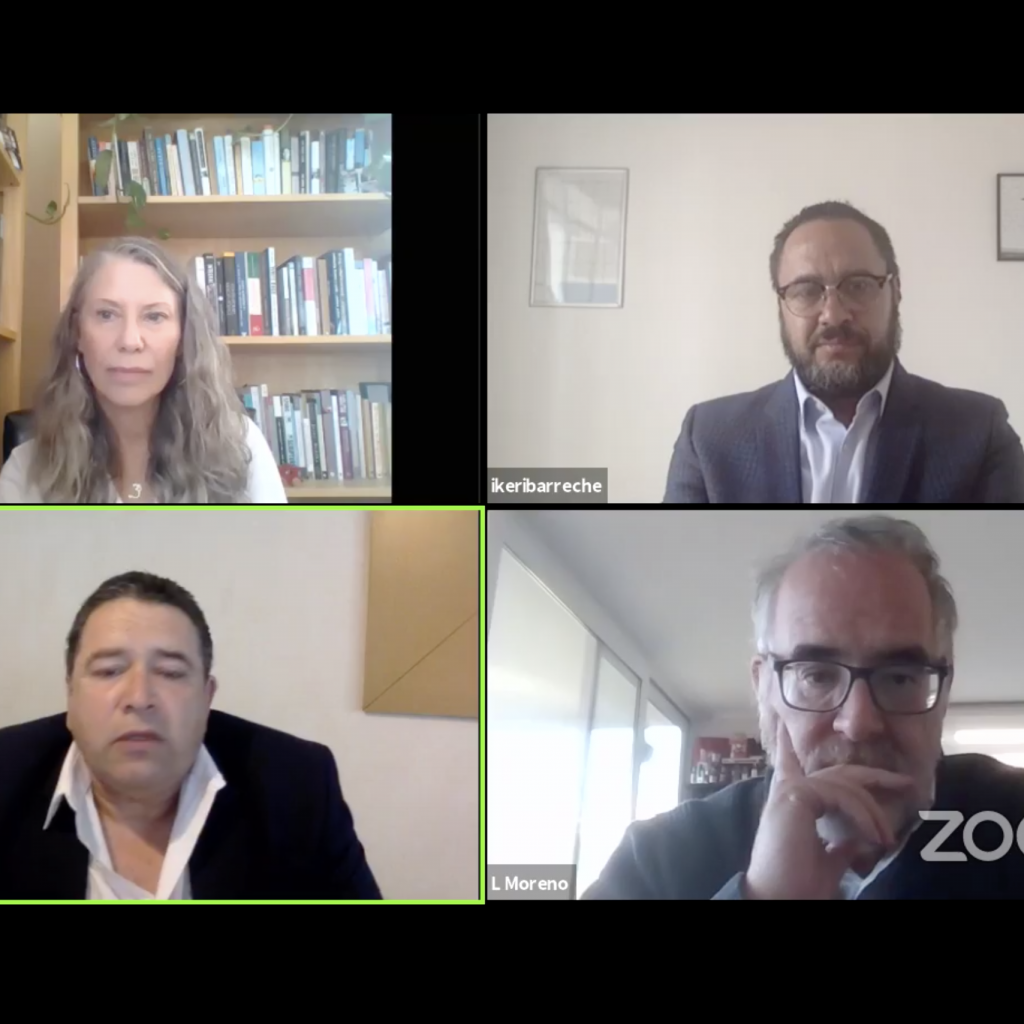12/29/19 (written by kheinle) – Mexico’s New Criminal Justice System (Nuevo Sistema de Justicia Penal, NSJP) has been in effect for well over three years, but each state’s implementation and effective functioning of the system varies widely. From public defenders to prosecutors, and from human rights protections to police officer trainings, the adversarial justice system encompasses many facets. The updates below from around the states demonstrates the NSJP’s breadth.
Colima
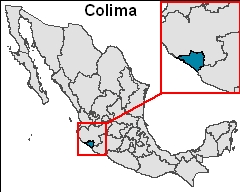
Just over 40% of Colima’s public defense attorneys are being let go due to budgetary cutbacks approved by that state’s Congress in December, dropping the total number on staff from 83 to 47. The president of Colima’s Bar Association (Federación de Colegios, Barras y Asociaciones de Abogados Asociación Civil), Oswy Delgado Rodríguez, spoke on the matter. He lamented that the lawyers affected were valuable, experienced, and able to sufficiently defend Colima’s vulnerable populations. Their loss would have an impact.
The lack of resources allocated to Colima’s public defenders is not unique to the state. According to the Washington Office on Latin America citing México Evalúa, “In 2018, these [public defense] agencies received less than 2 percent of a pool of funds allocated to public defenders’ offices, federal courts, the Federal Police, the National Prosecutor’s Office, and the Executive Commission for Attention to Victims.”
This is compounded by the fact that Colima has regularly been one of the latter states to advance the NSJP. As Justice in Mexico noted in its 2015 report, Colima was one of the last two states along with Hidalgo to approve the reform to implement the NSJP, not doing so until August of 2014. It was also one of the last five states to begin implementing the system itself, again not doing so until December 2014. This left just over 18 months for the state to fully implement the justice system before the constitutionally mandated deadline of June 2016.
Mexico City (Ciudad de México, CDMX)

Mexico City is complying with the nationwide push at federal and state levels to make the Prosecutor’s Office autonomous from the Executive Branch. In effect, this would bolster the adversarial justice system by “strengthen[ing] the public prosecutor’s offices in combating violence, corruption, and impunity,” writes WOLA in a detailed report from November 2019. In a follow up report, WOLA elaborated that this shift would ultimately bring the Prosecutor’s Office’s structure and investigative priorities “more in line with the adversarial system.”
The nation’s capital is doing so, however, in a “unique and innovative” way, argues WOLA. What sets Mexico City’s approach apart from the other 31 states is that the process is rooted in civil society and led by a Technical Commission. As mandated by Mexico City’s updated constitution in 2018, its State Congress is to “select a Technical Commission made up of seven civil society leaders to design a proposal for how to complete the city’s transition toward an autonomous prosecutor’s office,” writes WOLA.
The commission was filled just over a year ago and has since drafted a proposed “Implementing Law” (Ley Orgánica) to help guide the creation of the Prosecutor’s Office, specifically outlining the office’s structure and function. The Law’s main goals in establishing the Prosecutor’s Office are “improving results in high-impact cases, managing case flows and complaint reception efficiently, strengthening institutional professionalization, and ensuring strong internal controls.”
Click here to read more about WOLA’s comprehensive reporting on Mexico City’s Technical Commission.
Michoacán
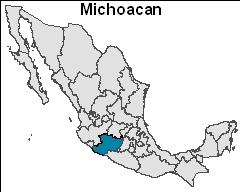
The State of Michoacán took two key steps in December to strengthen protection of human rights, a pillar of the New Criminal Justice System.
First, the State’s Legislative Committees recommended the naming of Michoacán’s head of the State Commission on Human Rights (Comisión Estatal de Derechos Humanos, CEDH). On December 4, Dr. Jean Cadet Odimba On’Etambalako Wetshokonda was nominated to the ombudsman role, edging out the other candidate, Mtra. Elvia Higuera Pérez. Cadet shared his plans for the CEDH, starting with a “reengineering” of the agency to ensure it can be flexible enough to adjust to the needs of the people. He also plans to ensure all members of the CEDH receive quality training on human rights protections to strengthen the agency’s services. This was Cadet’s second attempt to run for the position.
Human rights were also a key focus of a training attended by Municipal Police from Charo, Michoacán in November and December. The State’s Attorney General’s Office (Fiscalía General del Estado, FGE) led the course, titled “Updating Police Roles,” which included specific training on human rights vis-à-vis police responsibilities. This portion of the course was facilitated by the FGE’s Director of Human Rights Promotion and Defense, Marcela Verónica Chávez Hernández. At least nine police attended the training.
Sources:
Rodriguez, Octavio and David A. Shirk. “Criminal Procedure Reform in Mexico, 2008-2016.” Justice in Mexico. October 2015.
Cortes, Nancy G. et al. “Perspectives on Mexico’s Criminal Justice System: What Do Its Operators Think?” Justice in Mexico. April 2017.
Hinojosa, Gina and Maureen Meyer. “Mexico’s Rule of Law Efforts: 11 Years After Criminal Justice Reforms.” Washington Office on Latin America. November 13, 2019.
Hinojosa, Gina and Maureen Meyer. “Steps Toward a Functioning Local Prosecutor’s Office: The Mexico City Model.” Washington Office on Latin America. November 25, 2019.
“Ya es tiempo de que Michoacán tenga un ombudsman ciudadano: Jean Cadet Odimba.” Mi Morelia. November 25, 2019.
“Después de las comparecencias, el Panorama se aclara en el nombramiento del Ombudsman Michoacano.” PCM Noticias. December 6, 2019.
“Clausura FGE curso de capacitación a policías de Charo en materia de Derechos Humanos y actualización de la función policial.” Contramuro. December 23, 2019.
De la Torre, Martha. “Gobierno de Colima despide a 40% de sus defensores públicos.” El Heraldo de México. December 26, 2019.
“Hallazgos 2018: Seguimiento y evaluación del sistema de justicia penal en México.” México Evalúa. August 7, 2019.

